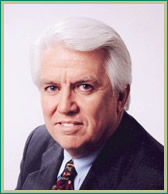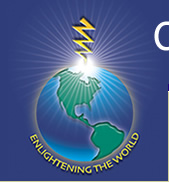
Compassion Is as Compassion Does
|
 |
|
| Dr. Paul D. Houston Founding Partner |
In the iconic comic strip Peanuts, the character of Linus once said, “I love mankind. It’s people I can’t stand.” I think there are more of us like Linus than we would care to admit. This is perhaps why another childhood icon, Mr. Rogers, used to sing and ask children, “Won’t you be my neighbor?” As we look around us, we see people professing their deeply held religious beliefs while they cheat on their spouses, short-change their customers, and clamor to bomb someone back to the Stone Age. Most of us—maybe all of us?—are often short on compassion in our daily lives.
What is compassion anyway? It is certainly more than caring. Far too often in our Western world the idea of compassion is seen as something soft and not worthy of our interest. In Eastern philosophy, particularly in Buddhism, compassion is seen as the companion of wisdom, and equal to it. Wisdom and compassion are sometimes viewed as the two wings that must work together to enable us to fly. In the Western world we tend to think of wisdom as something that comes from the mind and compassion as connected to the heart. Since our world tends toward dualism, we often see one as the opposite of the other. Perhaps we need to understand that wisdom comes through compassion and is not really possible without it.
When we observe the destruction of our world through our abuse of the environment and the greed that has led to our economic crises, we must conclude that we live in a world that lacks compassion. I am always struck by the fact that the greatest damage inflicted on our world, be it from war or economic meltdown, is created by those who have great learning. Both Wall Street and the Pentagon (and their equivalents throughout the world) are teeming with well-educated people. But the question arises as to how many of those people are truly wise. And, because they are not wise, they lack the compassion to understand the effects of their actions on others. True compassion is the desire to see a lessening of suffering in others. It is not simply being nice to one another (though that would be a good start). Christian tradition teaches that we should love others as we love ourselves. That is compassion. True love encompasses a deep connection with others that longs to see them in their fullest human state. Certainly, that cannot be achieved by hurting others. But it also cannot be achieved simply by caring for others. Compassion, like love, is a verb, not just a noun; it must be constantly applied to yield the greatest benefits.
In fact, sadly, our world is very short on compassion. I’m sure some would argue with that. As proof of my assertion, consider the fact that when acts of compassion are brought to light, they are seen as highly unusual and powerful and are widely reported. Mother Teresa is on the fast track to sainthood for her work in the slums of Calcutta. Why haven’t we heard about a new generation of Mother Teresas? The news media reports the unusual and extraordinary, so when someone demonstrates compassion it can land on the front page. I recently saw an article, repeatedly reported, that described an incident on the metro in Vancouver, Canada. A man on the train was seemingly suffering from drug abuse and/or mental issues. He was alarming the other passengers by yelling, cursing, and waving a pen wildly. Suddenly an older woman grabbed his hand and held it. Her gesture of compassion calmed the man; eventually he sank to the floor and began to cry. The woman said later she was afraid he might stab her with the pen, but she also felt that he needed someone to touch him and she didn’t want him to feel alone. That is compassion in action. Her simple act made news around the world.
This leads us to the question of how we can increase that deep sense of empathy that wants to share the suffering of others. Well, science gives us some good news. Our DNA drives us to be compassionate. Studies show that infants show a preference for people they perceive as helpful. When we follow up on this instinct that we are given at birth, good things happen—not just to those we help, but to us as well. Research shows us that compassion has positive health benefits for those who practice it. Those who practice compassion tend to bounce back from sickness and other challenges more quickly than those who have less compassion. Moreover, a study showed that surgery patients who were treated by more empathetic caregivers required less pain medication. Other studies show that compassionate people actually have more energy than others. Studies of the brain have shown that compassionate people also show less stress, which adds to their lifespan and makes them truly happier.
So there are many compelling reasons for offering compassion to others. Again, religious training tells us that what we sow, we shall reap. When you offer compassion to others, your own life becomes richer.
Studies have shown that compassion can be taught—not just to children, but to adults. This leads to more altruistic behavior and to actual physical changes in the brain. The use of compassionate meditation (asking the subjects to meditate and imagine someone suffering and then wishing for the relief of that suffering) can yield more compassionate behavior. The subjects of the study were asked to imagine feeling compassion: first toward those close to them, then toward others who are strangers, and finally toward someone with whom they have conflict. The studies showed that those who received this training became more altruistic and generous, and that led ultimately to changes in the brain—increasing activity in the parietal cortex, which is the area of the brain associated with empathy and understanding of others.
If we expect the world to change, we must be the agents of that change. The most powerful action that we can take to bring about such change is to live our life with more compassion. Compassion becomes a force multiplier that has the power to enable even Linus to love all of humankind, and the people who make it up.
![]()
Center for Empowered Leadership ®
Email: info@cfel.org
Phone: 1.609.259.7911
